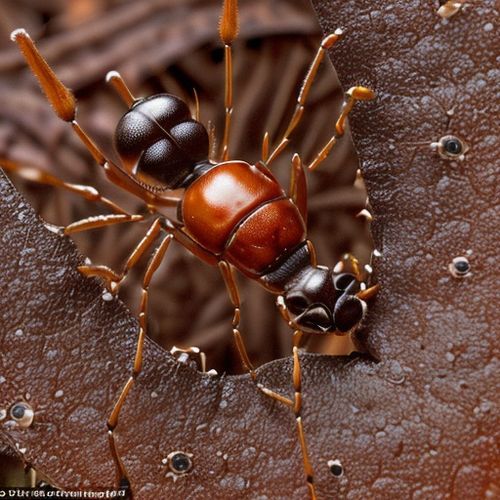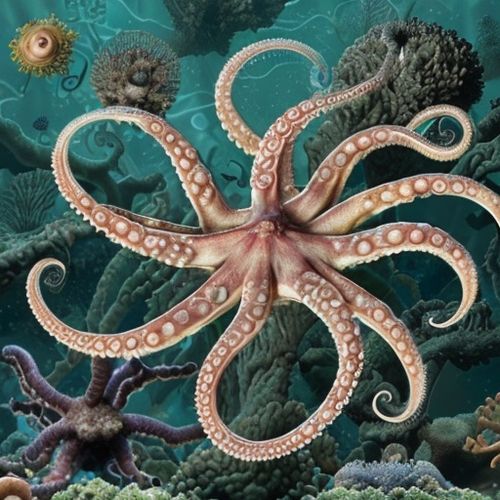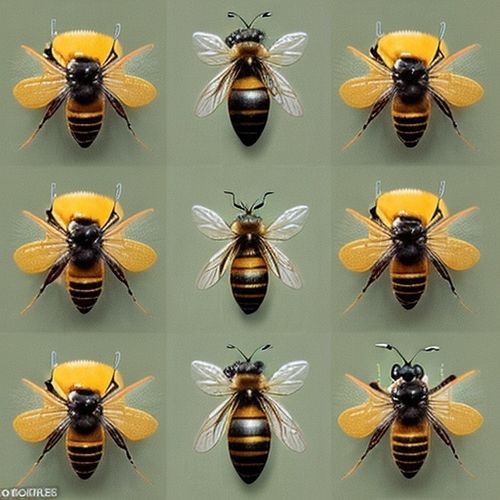The recent breakthrough in octopus genome sequencing has sent shockwaves through the scientific community, revealing a genetic complexity that borders on the alien. These eight-armed marvels of the ocean, long celebrated for their intelligence and camouflage abilities, now stand revealed as possessing a genetic code unlike anything else in the animal kingdom. The implications of these findings extend far beyond marine biology, challenging our fundamental understanding of evolution and the very definition of what makes an organism "earthly."
When researchers first peeled back the layers of octopus DNA, they encountered a genomic landscape that defied all expectations. Unlike the relatively orderly genetic sequences found in most vertebrates, the octopus genome appears almost chaotic in its organization. Genes are shuffled, duplicated, and rearranged in patterns that resemble more the genetic architecture of plants than animals. This peculiar arrangement may hold the key to understanding the octopus's remarkable ability to rewrite its own neural circuitry and adapt its body to solve complex problems.
The most startling revelation comes from the identification of hundreds of genes that appear to have no evolutionary precedent. These "alien" genes, as some researchers have taken to calling them, encode proteins with structures and functions unlike anything previously documented in biology. What makes this discovery particularly extraordinary is that these novel genes aren't simply minor variations on existing genetic themes - they represent entirely new biological innovations. Some scientists speculate these genes may have been acquired through horizontal gene transfer, possibly from viruses or other marine microorganisms, though the mechanisms remain mysterious.
Beyond the novel genes themselves, the octopus genome displays an unprecedented level of RNA editing capability. While all complex lifeforms perform some RNA editing, octopuses take this process to extremes, routinely rewriting their genetic instructions at the RNA level. This biological "on-the-fly programming" allows for incredible adaptability at the cellular level, potentially explaining how octopuses can rapidly alter their skin color, texture, and even their nervous system's wiring in response to environmental challenges.
The intelligence question looms large over these genomic discoveries. Octopuses demonstrate cognitive abilities that rival some mammals, including problem-solving skills, tool use, and even what appears to be playful behavior. Traditional evolutionary biology struggles to explain how such sophisticated intelligence emerged in a lineage so distant from vertebrates. The new genetic data suggests that octopuses may have taken an entirely different path to intelligence, one that relies more on distributed neural processing and cellular adaptability than on centralized brain structures.
One particularly fascinating aspect of octopus genetics involves their nervous system development. Unlike vertebrates, where the majority of neurons reside in the brain, two-thirds of an octopus's neurons are distributed throughout its arms. This "distributed intelligence" system allows each arm to operate with considerable autonomy while remaining coordinated with the whole organism. The genetic mechanisms enabling this unique neuroanatomy involve a complex interplay of developmental genes that have evolved in ways never seen in other intelligent species.
The implications of these findings extend beyond basic biological curiosity. Understanding how octopuses achieve such remarkable feats of regeneration, neural plasticity, and adaptive camouflage could revolutionize fields from medicine to robotics. Biomedical researchers are particularly interested in the mechanisms behind octopus limb regeneration, which occurs without scarring and with full restoration of complex neural connections. Meanwhile, materials scientists study their color-changing cells for clues to developing new adaptive camouflage technologies.
From an evolutionary perspective, the octopus genome presents a profound mystery. Their lineage split from ours more than 500 million years ago, yet they've arrived at similar cognitive capabilities through entirely different genetic means. This phenomenon, known as convergent evolution, has never been observed operating on such a grand scale. The octopus challenges our anthropocentric view of intelligence and suggests that complex cognition might emerge more readily in the universe than previously thought.
As research continues, some scientists are beginning to ask whether the octopus represents a "second genesis" of complex life on Earth. While all known life shares common ancestry, the extreme divergence of cephalopod evolution raises questions about whether their genetic innovations might approach the level of difference we'd expect to find in truly alien lifeforms. The octopus genome doesn't just expand our understanding of life on Earth - it expands our imagination of what life elsewhere in the universe might look like.
The more we learn about octopus genetics, the more these creatures seem to defy our biological expectations. Their genome tells a story of radical innovation and evolutionary experimentation unlike anything else in the animal kingdom. As we continue to decode their genetic secrets, we may find that the most alien intelligence on Earth isn't in some distant galaxy, but swimming in our planet's oceans, watching us with curious eyes and solving problems with eight nimble arms.

By Emily Johnson/Apr 10, 2025

By John Smith/Apr 10, 2025

By Christopher Harris/Apr 10, 2025

By Noah Bell/Apr 10, 2025

By Rebecca Stewart/Apr 10, 2025

By Victoria Gonzalez/Apr 10, 2025

By Amanda Phillips/Apr 10, 2025

By Emma Thompson/Apr 10, 2025

By Lily Simpson/Apr 10, 2025

By Emma Thompson/Apr 10, 2025

By Sophia Lewis/Apr 10, 2025

By Rebecca Stewart/Apr 10, 2025

By Noah Bell/Apr 10, 2025

By Sophia Lewis/Apr 10, 2025

By Christopher Harris/Apr 10, 2025

By Eric Ward/Apr 10, 2025

By Daniel Scott/Apr 10, 2025